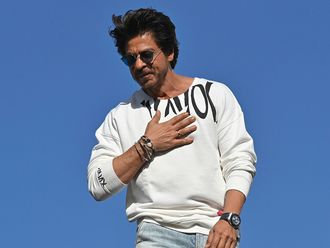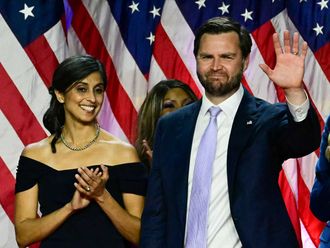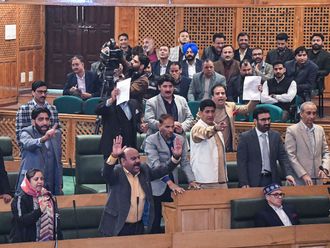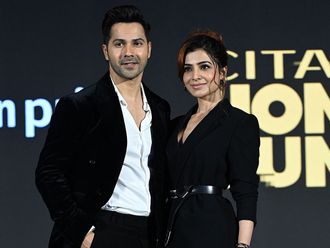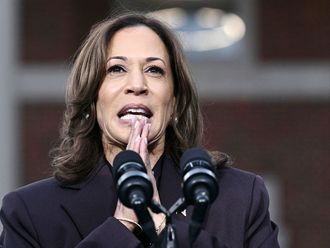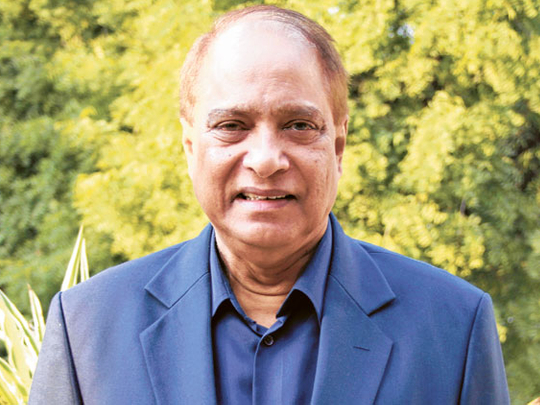
New Delhi: Lawyer-turned-politician Eduardo Faleiro is Commissioner for NRI Affairs in Goa and holds the rank of a cabinet minister.
After a short stint as member of the Legislative Assembly in the state, he moved to national politics in the late 70s.
Goa has always had special significance in his life and keeping the interest of the state and its population in mind, he has been instrumental in pursuing several beneficial policies and programmes.
He has recommended to the state government to create 10 more seats in the Goa Medical College and five more in the Dental College on supernumerary basis for the benefit of children of non-resident Goans.
The credit of helping Goan students wanting to study or take up jobs abroad also go to Faleiro for his relentless work.
Goa University degrees were not recognised in some countries including Kuwait, Canada and New Zealand, but the situation has changed after the Commissioner for NRI Affairs talked with the National Board of Accreditation.
His efforts led to 200 Goan victims of the Kuwait war obtain compensation from Rs400,000 (Dh33,332) to Rs5 million.
But for Faleiro's personal intervention, the war-affected Goans would have been deprived of their compensation since they had not claimed the amount within the stipulated time of six months set by the United Nations Claims Commission. He speaks to Gulf News in an exclusive interview.
GULF NEWS: Recently you mentioned that Kashmir's Line of Control should be converted into international border to solve the issue with Pakistan for good. Please elaborate how it would help solve the issue.
EDUARDO FALEIRO: I basically meant having a soft border, say about 5km in breadth and greater economic exchange on both sides. Also, as an exceptional case, it could help having a governor from the state itself, which though is not the norm. But seeing the peculiar position of the state there can be a different set of rules. There's a need for better co-operation and cultural interaction between the South Asian countries, as no effective thought has been given to regional co-operation.
I can say this because I was earlier chairman of the South Asian Forum and have always been concerned about the situation in the region. Greater co-operation will contribute a great deal in solving the problems not just between Indian and Pakistan, but also with Bangladesh, Nepal, Sri Lanka and Afghanistan.
Do you agree with former Chief Minister Farooq Abdullah that removal of the Armed Forces Special Powers Act (pertaining to Kashmir) is not a simple thing?
He is absolutely right. So long as there is militancy in the region, the Special Powers Act is needed. We have to understand that neither Abdullah nor the people of Kashmir want to be a part of Pakistan. They want to be independent, but that's a complex thing because people from both Jammu and Ladakh want to be with India.
Have you noticed any major change in Jammu and Kashmir after the visits of the three interlocutors appointed by the government?
I cannot comment on it as I haven't followed up on the matter.
You announced the ‘Know Goa Programme' (KGP). Is it being initiated for children of NRIs?
It's meant for Goan PIOs (People of Indian Origin) and OCIs (Overseas Citizens of India) and not for NRIs because NRIs and their children do come to India often, whereas others do not.
The purpose is to make foreign nationals of Indian origin people aware of their roots and keep a link with Goa, the state of their origin, and the country they have now adopted. The programme is especially for the 18-25 years age group, who have distinguished themselves in their field of activity and are potential future leaders.
What's the programme all about?
It's not a holiday programme, but a study tour. The programme includes meeting the governor, the chief minister, political leaders, the grassroots level workers, university students and cultural groups and interact with them.
It means providing first-hand knowledge of Goa to strengthen the bond between Goa and overseas Goans.
When and how did the idea take shape and how has been the response to the KGP for the last three years?
It's essentially on the lines of Know India Programme that was initiated by the Ministry of Overseas Affairs. But, unfortunately, no Goan was involved in that.
So we started this wherein we have young Goans holding British, Canadian, Australian, Malaysian or Tanzanian nationality. While the Know India Programme picks up one state every time, our emphasis is only on Goa.
What kind of crash courses have you offered to Gulf job aspirants?
The Overseas Employment Agency of Goa has been imparting skill upgradation and foreign orientation training to job seekers in various skilled trades. This helps them get better salaries.
There have been several instances where people approach a recruiting agency for a job abroad. Even if the person doesn't know the job of — for instance, an electrician, but can just manage to fix a bulb, he is sent to the Gulf country after charging a whopping sum by the agent.
But since he is not an electrician, on reaching there, he has no choice but to take up some other job.
And instead of the promised salary, he gets much less and will struggle to survive, let alone be able to help the family back home. He is trapped and unable to come back because of financial difficulties.
The crash course helps such people not only with modern technical skills, but also prepares them for job interviews. The agency also conducts short-term courses in spoken Arabic.
What kind of co-ordination do you get from the Ministry of Overseas Affairs? Are there any areas of conflict?
There is total co-ordination between the ministry and our office and because we interact on a regular basis, the question of conflict does not arise.
Having been in the country's foreign ministry, how does it feel being restricted to your state?
I had practically retired and wanted to be in Goa. It may be a small state, but there's enough work to keep me busy.
Your views on NRI voting rights? Is it as simple as what Law Minister Veerappa Moily makes it out to be?
It's a constitutional right and many countries now provide voting rights to expatriates. And just because a citizen is not in his country, he should not be deprived of his rights.
I agree with Moily that whether it is done through embassies or the voter comes to India, he or she should be able to cast the vote.
Life dedicated to serving people
- Eduardo Faleiro was born on August 30, 1940 in Lisbon, Portugal.
- Educated in Lisbon followed by the University of Karnataka.
- Qualified in law from the Karnataka Law College and practised at the Bombay High Court, becoming the first Goan to set up a Supreme Court practice.
- Entered politics and became member of Goa Legislative Assembly - 1971-76.
- Elected to the Lok Sabha - 1977, 1980 and 1984.
- Minister of State, Ministry of External Affairs - 1986-89.
- Minister of State, Economic Affairs (Finance) - 1988-89.
- Elected to the Lok Sabha - 1989 and 1991.
- Minister of State, Ministry of External Affairs - 1991-93.
- Minister of State, Chemicals & Fertilisers and Parliamentary Affairs minister - 1995.
- Member of the Rajya Sabha - 1999-2005.
- Commissioner for NRI Affairs, Government of Goa - 2006.


